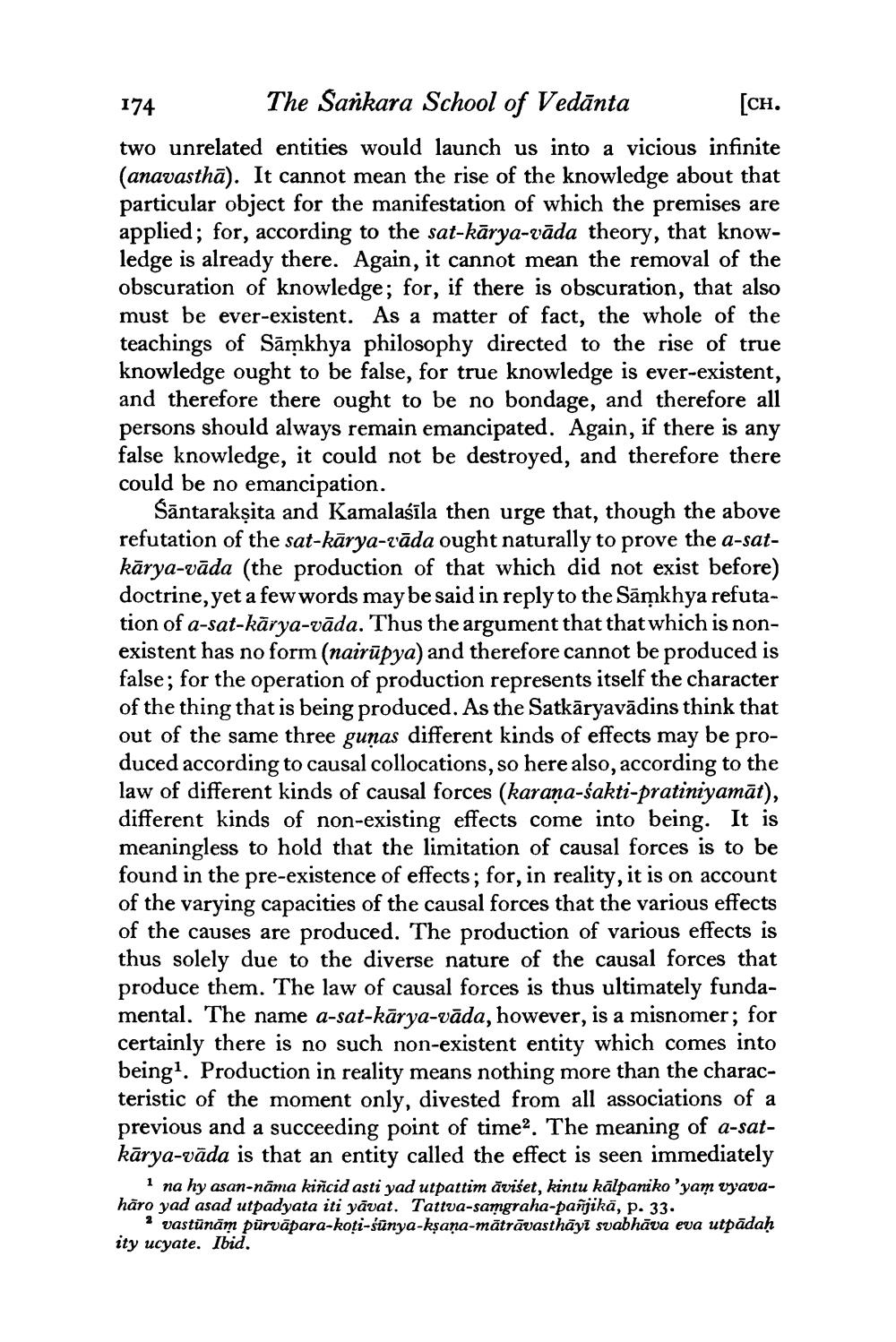________________
174
The Sankara School of Vedānta [CH. two unrelated entities would launch us into a vicious infinite (anavasthā). It cannot mean the rise of the knowledge about that particular object for the manifestation of which the premises are applied; for, according to the sat-kārya-vāda theory, that knowledge is already there. Again, it cannot mean the removal of the obscuration of knowledge; for, if there is obscuration, that also must be ever-existent. As a matter of fact, the whole of the teachings of Sāmkhya philosophy directed to the rise of true knowledge ought to be false, for true knowledge is ever-existent, and therefore there ought to be no bondage, and therefore all persons should always remain emancipated. Again, if there is any false knowledge, it could not be destroyed, and therefore there could be no emancipation.
Sāntarakṣita and Kamalasīla then urge that, though the above refutation of the sat-kārya-rāda ought naturally to prove the a-satkārya-vāda (the production of that which did not exist before) doctrine, yet a few words may be said in reply to the Sāmkhya refutation of a-sat-kārya-vāda. Thus the argument that that which is nonexistent has no form (nairūpya) and therefore cannot be produced is false; for the operation of production represents itself the character of the thing that is being produced. As the Satkāryavādins think that out of the same three gunas different kinds of effects may be produced according to causal collocations, so here also, according to the law of different kinds of causal forces (karana-sakti-pratiniyamāt), different kinds of non-existing effects come into being. It is meaningless to hold that the limitation of causal forces is to be found in the pre-existence of effects; for, in reality, it is on account of the varying capacities of the causal forces that the various effects of the causes are produced. The production of various effects is thus solely due to the diverse nature of the causal forces that produce them. The law of causal forces is thus ultimately fundamental. The name a-sat-kārya-vāda, however, is a misnomer; for certainly there is no such non-existent entity which comes into being? Production in reality means nothing more than the characteristic of the moment only, divested from all associations of a previous and a succeeding point of time. The meaning of a-satkārya-vāda is that an entity called the effect is seen immediately
1 na hy asan-nāma kiñcid asti yad utpattim āviset, kintu kālpaniko 'yam vyavahāro yad asad utpadyata iti yāvat. Tattva-samgraha-pañjikā, p. 33.
vastūnām pūrvāpara-koți-sünya-kşaņa-mātrāvasthāyī svabhāva eva utpādah ity ucyate. Ibid.




